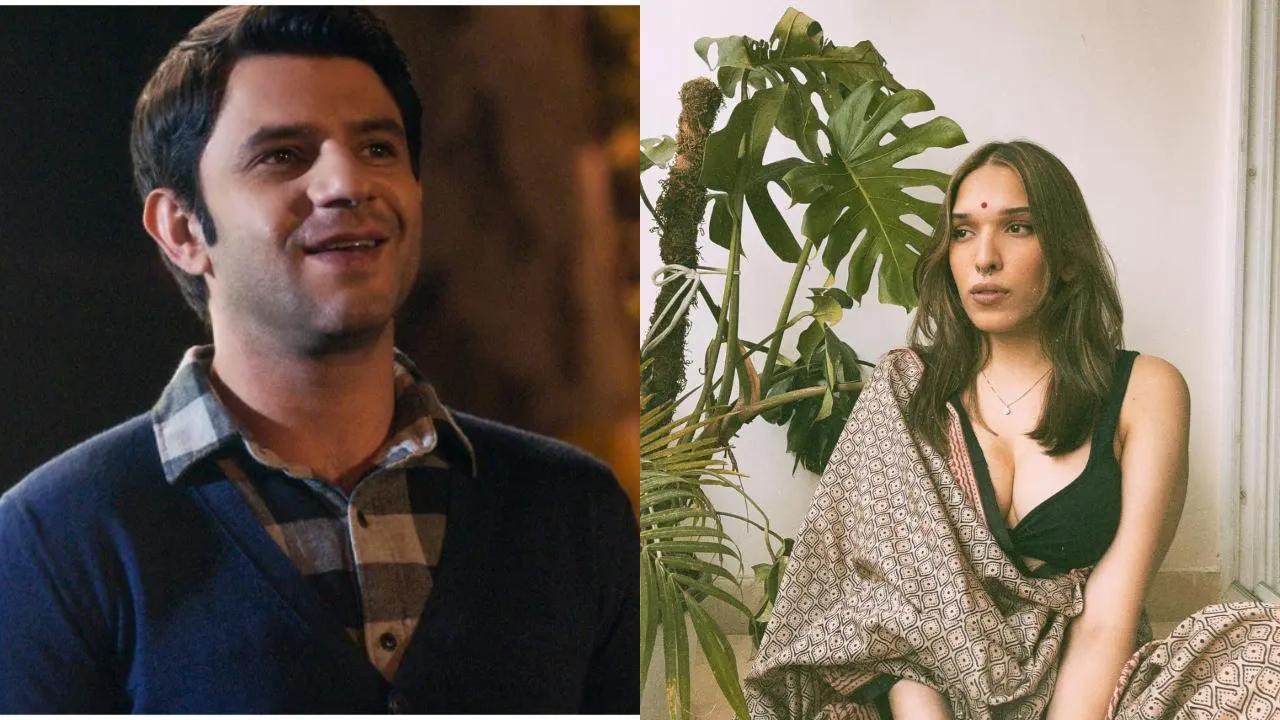Freedom of expression of identity: ‘Made in Heaven’ is transgressing convention in more ways than one. The show destabilizes notions about sex, desire and identity through its portrayal of queer characters. Who is free to authentically live as oneself; choose and celebrate romantic/sexual partners without facing threats of violence? Read on -

Arjun Mathur and Trinetra Haldar
Key Highlights
- Made in Heaven is championing LGBTQIA+ rights and identities through its sensitively portrayal of queer characters
- Arjun Mathur plays Karan, a gay man. Season 1 follows how he processes childhood trauma, homophobia and his journey of self-accepatnce
- Season 2 continues to carry the baton by bringing Trinetra Haldar, Karnataka`s first trans doctor onboard
The lavish Indian wedding spectacle has been a centerpiece of Hindi entertainment for a long time. However, what lurks behind this performative display of love has been far less examined – and Made in Heaven does exactly this – it self-reflexively explores the dark side of India’s elite. With Season 2 releasing tomorrow, we are exploring what makes this show special.
The series follows mainly two protagonists, Tara and Karan who are founder-partners of Made in Heaven – a Delhi-based wedding consultancy and planning agency. They are tasked with designing and selling ‘heaven’ to their uber-rich clientele.
The show uses the subtext of the different weddings that they plan to delve deeper into Tara and Karan’s private dysfunctional, hellish landscapes.
Made in Heaven is a show that truly champions LGBTQIA+ identities, queer rights and protest. The social and political shame, stigma, discrimination faced by Indian queer people and re-affirmation of queer identity is tenderly portrayed, unlike in so many mainstream films and television where queer characters, and by extension, their lived experiences have been disregarded, ridiculed or used as comic relief.
Arjun Mathur plays Karan, a closeted gay man who is grappling with the emotional consequences of hiding part of his identity. The show never attempts to police choice, sex or desire. Karan has several one-night stands whom he hushedly asks to leave in the morning. Queer desire is portrayed in an achingly tender and disarmingly sensitive manner. It builds cinematic sensualities to portray what queer desire, really, at its heart is – essentially human.
However, his secret exploits of pleasure and pursuit of emotional intimacy are juxtaposed by memories and the lingering grief of social, familial and self-inflicted childhood trauma. The adult Karan leads a double life which is often suffocating - and this is visually also represented by often framing him behind window bars and closed gates.
Karan lives in perpetual terror of authentically leading his life in a country which criminalizes homosexuality. As the show progresses, Karan’s landlord gets increasingly suspicious about him entertaining multiple ‘male friends’ frequently and secretly installs a security camera in his bedroom.
The audience is drawn into believing that he is homophobic, and collecting evidence to turn in to the police, but the title of the episode, ‘A Marriage of Convenience’ betrays that all is not what it may seem. This is later confirmed when the landlord’s wife catches him masturbating to the footage.
The conversation between the landlord and his wife is particularly striking – he claims he is engaging in ‘watchful surveillance’, but in his attempt to convince not only his wife but also himself of his heterosexuality, one senses the futile attempt at veiling pleasure, shame and loss of part of oneself.
When he turns in the evidence to the police to appease his wife’s fears about him being gay, the camera zooms in on him watching Karan being arrested from behind the bars of a window, much like Karan earlier was. The show brings out the complex simultaneous hypocrisy and internal battle of an oppressed figure turned oppressor, unwilling to fully claim or relinquish his identity in a country that will ostracize him to the margins.
That 'Made in Heaven' depicts surveillance (a reality that queer people constantly grapple with) in the incredibly intimate space of the bedroom also brings up questions of freedom and desire – who are truly ‘free’ to choose their sexual and/or romantic partners and celebrate one’s relationships? Who is permitted to exercise the full extent of their agency when it comes to expression of sexual and romantic desire and pursue intimacy and in which spaces?
Karan spends several nights in jail where he is brutally abused by a policeman upon refusing to gratify his sexual desire. This points to the violation of privacy even within supposedly ‘safe’ spaces such as the home for queer people and once again, the hypocrisy of oppressors who exploit the marginalized for the same clandestine pleasures they apprehend them for -- reflecting the lived realities of many Indian non-urban and/or economically underprivileged queer people.
Unlike how queer characters have conventionally been depicted in Indian entertainment, Karan’s sexual orientation is not just a plot-building device, but an integral, real part of his identity and his life. Throughout the show, one senses both torture and tenderness in the reluctant yet desperate closetting of his identity. Karan’s encounter with the law leads him to re-assess his journey of self-acceptance, and he eventually files a PIL against Section 377. The first season closes with Karan coming out and engaging in actively rallying and protests.
The show has further cemented its stance on LGBTQIA+ rights in India by bringing Trinetra Haldar Gummaraju, Karnataka’s first trans doctor onboard for the second season of the show. In discussing her character with Outlook India, she said that despite being professionally successful, her character on the show grapples with acceptance as a trans woman in her personal life, especially when it comes to finding love.
“Through this character, I want people to see that trans women are women and deserve every right to be treated as such. Trans people in general are human beings, and we deserve opportunity, love, respect, success. In a country where 99% of us are discarded by our biological families, I want society to see that a little acceptance goes a long way,” she said.
The series is truly paving the way for authentic queer representation in mainstream Indian visual content - and it’s about time for others to follow! We can’t wait to see how the creators and cast will further these queer narrative arcs in Season 2.
‘Made in Heaven’ season 2 will premiere on Amazon Prime Video on August 10.
 Subscribe today by clicking the link and stay updated with the latest news!" Click here!
Subscribe today by clicking the link and stay updated with the latest news!" Click here!











